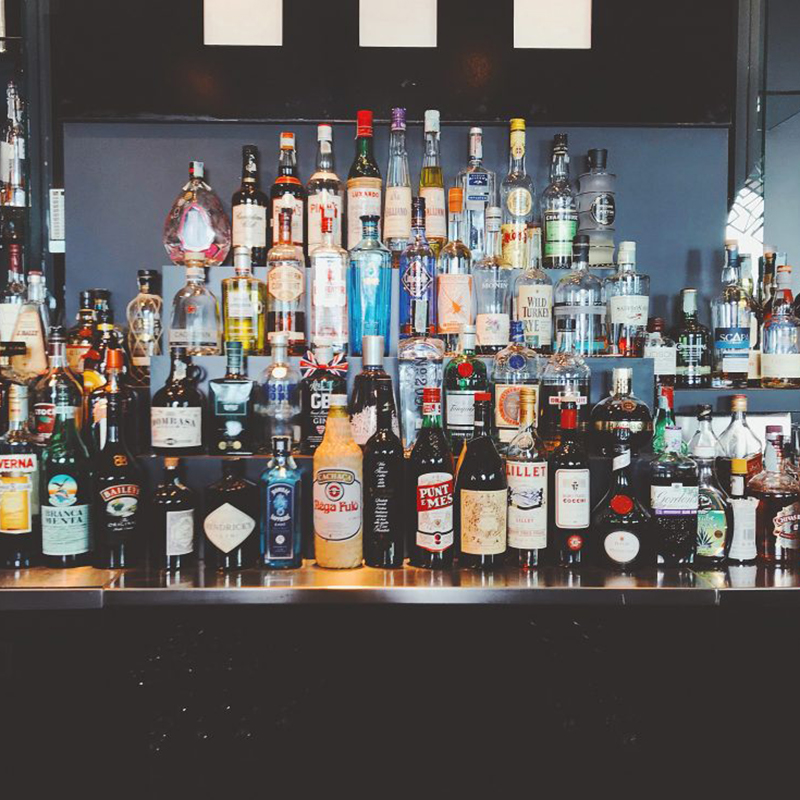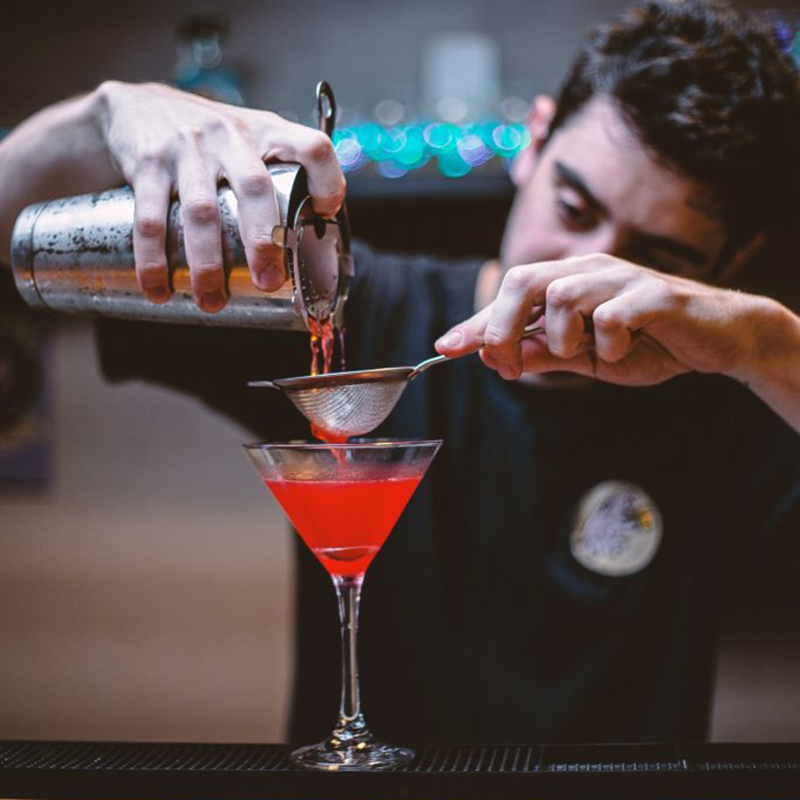It can be intimidating ordering a drink at a bar if you don’t consider yourself bar savvy. Thankfully, our guide below will have you ordering drinks like a seasoned expert in no time.
Common Bar Terms
Learning bartender terminology will reduce confusion when it comes time to order drinks at a bar and will ensure you get a drink that meets your expectations. Barsandbartending.com has a large list detailing common bartender lingo that includes the following:
- Straight up – Shaken in a shaker and strained into a glass. In some areas, straight up is used interchangeably with ‘neat’.
- Sour – the term ‘sour’ refers to the sourness of sour bar mix, bar lime mix, lime bar mix or margarita mix. If someone orders a Vodka Sour, they want vodka and bar lime mix.
- Shake and Strain – Place ice and ingredients into a shaker tin, shake and strain into a glass. A term commonly used for shooters and martinis.
- Rocks (On the) – A drink with ice.
- Premium – Premium refers to premium alcohol or top-shelf liquor
- Neat – This one is important to know in bar terms. If someone asks for a whiskey neat, they are asking for a shot straight out of the bottle. Neat means no ice. Of course that shot must be in a whiskey glass.
- Dry – Very little vermouth added to a martini. The more dry the customer wants their martini, the less vermouth added.
- Dirty – Adding olive juice to a martini (dirty martini).
If you know the restaurant or bar you will be visiting, look up the bar menu online to get a feel for what they offer and get ideas on what to order. If you are unsure or have questions, don’t hesitate to ask the bartender.

Best Drinks To Order At A Bar
These drinks are considered classic for a reason and will never go out of style. Here are ten common classics to try:
- Cosmopolitan
- Moscow Mule
- Old Fashioned
- Whiskey Sour
- Sidecar
- Mint Julep
- Martini
- Manhattan
- Negroni
- Mojito
Don’t forget to request your drink be made with Bogue Sound liquor!
Here is a list of bars and restaurants that stock our liquor.

How To Order Drinks At A Bar
Choose Your Drink
When deciding what drink to order, make sure you do not stand directly at the bar. This will allow those who know what they want to place their order and prevents overcrowding. If you don’t know what you want, would like a recommendation, or have a question for the bartender then wait until he or she is not busy.
When placing your drink order be prepared to answer questions as to how you would like it made and always have a plan B drink in case the bar doesn’t have what you asked for.
Paying For Your Drinks
There are several ways to pay for your drinks but regardless of how you choose, make sure you are ready when the time comes. If paying by credit or debit card, you can open a bar tab. The bartender will add your drinks to the tab and charge your card at the end of the night. You can also pay each time you place an order by card or cash.
Tipping
Tipping is always important but even more so if you plan to become a regular. It’s customary to leave a tip of 15-20% of the total.

How To Order Vodka and Gin
When placing a drink order that is made with vodka or gin make sure you specify which top-shelf liquor you would like. Otherwise, your drink will typically be made with a low-quality liquor typically kept on the speed rail.
If ordering a martini, be prepared to answer how you would like that made (e.g. dirty? Shaken?)
How To Order Whiskey
Whiskey is a broad term that includes rye whiskies, American whiskies, American bourbon, Scotch whiskies and so on. The bottles will range in price and quality. If a whiskey is not specified the bartender will typically use a mid-range label. Be prepared to specify how you would like your whiskey (e.g. on the rocks, neat).
While ordering drinks at a bar can be intimidating, it doesn’t have to be. By researching beforehand, learning key terminology and asking questions you will be on your way to becoming an expert.
Further Reading
- 3 Most Popular Decanters & Why You Need One
- Whiskey and Water: Calculating the Ideal Proof
- Choosing the Right Glass for your Liquor


Hi, I’d like to know if you can help.
I bought a bottle of Espolon tequila but it has a Date printed on the bottle “07/06/19” follows by a Letter “B”. Do you know is this relates to the expiry date or does Tequila don’t have a expiry date/best before date?
Appreciate your help.
Thanks
I’m sorry, but you’d have to contact Epsilon Tequila to find out what their bottle markings mean.